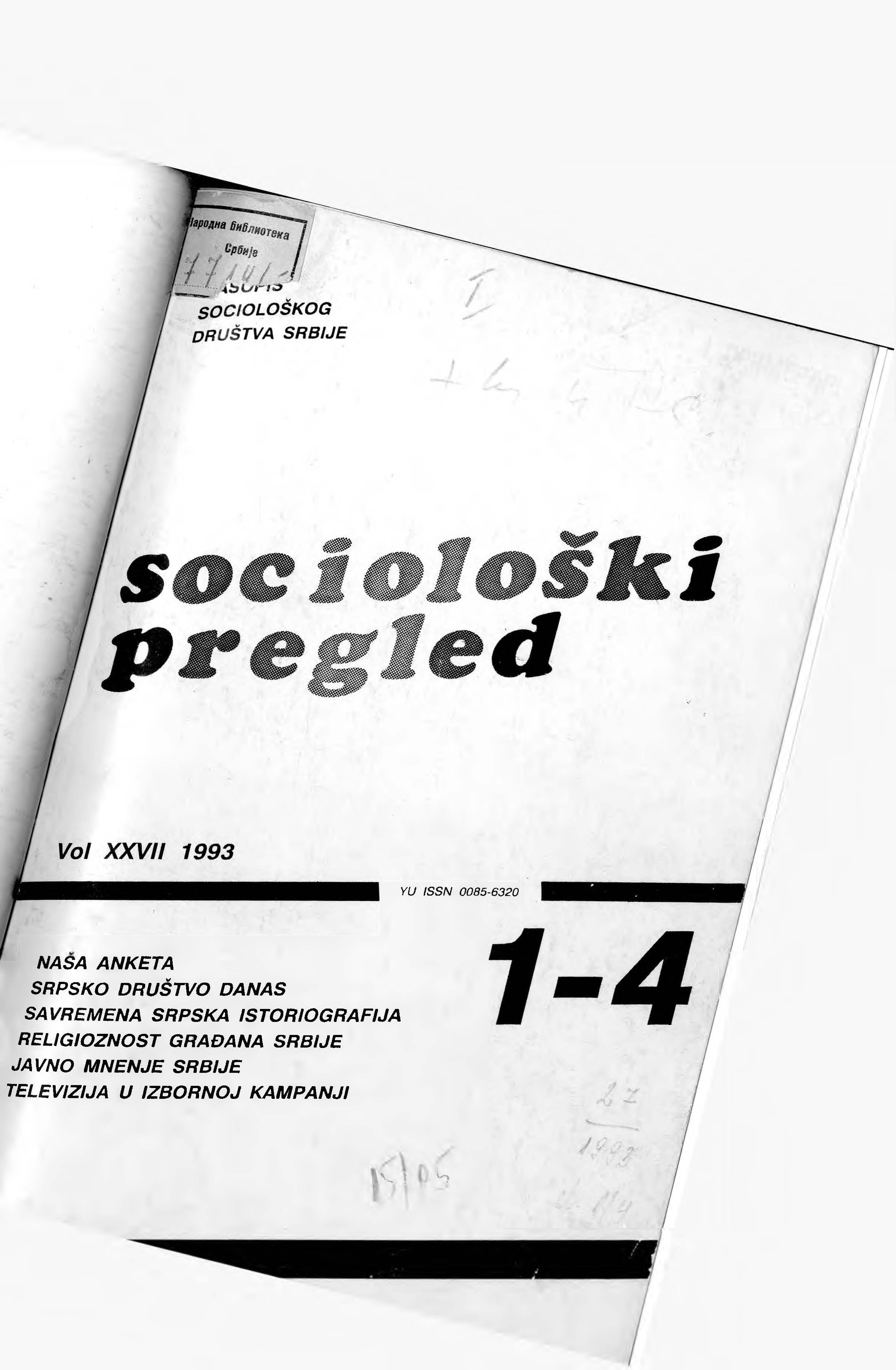Nation-State and Integration in Middle Eastern Europe
Nation-State and Integration in Middle Eastern Europe
Author(s): Dušan JanjićSubject(s): Social Sciences, Sociology, Social development, Social Theory, Social Norms / Social Control, Sociology of Politics
Published by: Српско социолошко друштво
Keywords: nacija;država;integracija;Srednja Evropa:Istočna Evropa;
Summary/Abstract: Due to incompleteness of events in Middle East Europe it is not possible to offer, at least with any measure of certainty, answers to the question of what will! emerge and often even to the one of what is actually happening in the Central and East part of Europe. Yet, judging by numerous indicators, it is a post-totalitarian situation where old totalitarianism makes way to new forms of totalitarianism, but also to germs of democracy. Contrary to promises and expressions of the spirit of democratic liberalism in the states of Middle-Eastern Europe, the prevailing spirit is becoming the one of Neo-Darwinism and 'survival of the strongest. That turns various groups against each other. Nationalist and racist symbolic policies and discriminatory ideologies represent an obvious and large danger for democratization and offer shield to old-new nomenclatures. The survival of these nomenclatures is, on its part, linked to the attainment of their interest to control, i.e. block radical economic reforms and democratization. That is why the issue of conciliation of absolute national sovereignty of national states and the imperative return into Europe is dramatically piercing. And while ideas of confederation of this part of Europe (advocated by Jeszy and Borsody) appear unfeasible under the present circumstances, the course of developments which insists on independent and autonomous national states, cannot provide for the way out of the crisis. While attempting to voice “national injustices”, particularly in multiethnic societies, it only sharpens the old and generates new conflicts. In the event of prevalence of this course “return to Europe” will resemble more a nostalgia for the past than a real possibility for the present and immediate future. Actually, the most difficult period is yet to follow. Should dismounting of the totalitarian state continue, these changes will, most probably take the following course: decentralization of the rules for communication; short term regulation of economic operations and long-term privatization on a large scale with the emerging of new intermediary classes. The future of this part, as well as the whole of Europe is unknown and uncertain. The scenario does not exist. Everybody improvises. Many things depend on the players who have only begun to learn the game. It would be possible to have liberal democracy with powerful citizens in the whole region, but it is also possible to end up with nationalism, not of the “la nation” type, but ethnonationalism or chauvinism. It may happen that the rule of rights could be established together with the increased standards, but the law of the jungle pervaded with the spirit of social-Darwinism could also prevail. Most probably, different stages will host different games. However, one thing can no longer be changed: the fact that in 1989 the East European nations changed history, In 1989 the world history card was, once again, in the hands of Eastern Europe and that Eastern Europe has played it in the series of “glorious revolutions”.
Journal: Социолошки преглед
- Issue Year: 27/1993
- Issue No: 1-4
- Page Range: 135-156
- Page Count: 22
- Language: Serbian

